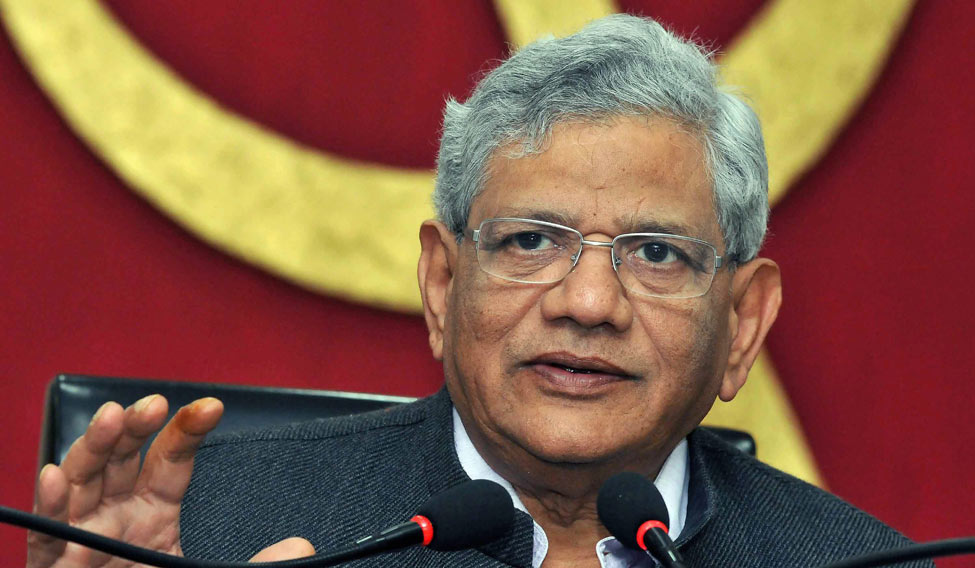CPI(M) general secretary Sitaram Yechury has said his party proposes to move an impeachment motion against Chief Justice of India Dipak Misra, and that he has begun efforts to evolve an opposition consensus on it. However, the odds are loaded against the efforts meeting with success, going by the present circumstances as well as history.
Yechury has begun talks with other opposition parties. “The CPI(M) is discussing with other opposition parties the possibility of bringing an impeachment motion against the CJI,” he told reporters. The CPI(M) move comes in the wake of the recent stunning press conference by four senior-most judges of the Supreme Court, in which they voiced their grievances with regard to the manner in which CJI Misra was running the apex court. The judges are apparently unhappy with politically sensitive cases being assigned to selected benches, and the tipping point for them is learnt to have been the assigning of the Judge Loya case to a bench of junior judges.
However, getting the numbers for an impeachment motion would prove to be extremely difficult for the CPI(M). The Congress, the principal opposition party, has so far been non-committal on backing any such move. The opinion within the party on the issue is split. Those in favour say the Narendra Modi government should be cornered over the crux of the press conference of the four senior-most judges, which is of the executive influencing the functioning of the apex court. The leaders opposing such a move say an impeachment motion requires evidence of corruption or immoral conduct on part of the judge, which would be difficult to get.
The CPI(M) plans to move the motion seeking impeachment of Justice Misra in the Rajya Sabha. For such a motion to be moved in the upper house, at least 50 members of the house are required to sign on it. The chairman of Rajya Sabha then constitutes a three member inquiry committee comprising two judges of the Supreme Court, if the judge who is sought to be impeached belongs to the apex court, and a jurist. If the judge against whom the motion is moved is from a high court, the committee should comprise an SC judge, the Chief Justice of the high court concerned and a jurist.
If such a motion is moved in the Lok Sabha, it has to be signed by at least 100 members of the house. The Speaker of the Lok Sabha then constitutes the three-member inquiry committee.
If the inquiry committee recommends impeachment of the judge, the house in which the impeachment notice was moved has to vote on it, and the judge can be impeached only if two-thirds of the members vote for it. If the other house of Parliament also clears the motion with two-thirds majority, it is sent to the President for his assent.
So far, no judge has been impeached despite Parliament moving to impeach judges on a few occasions. Justice V. Ramasami is the first judge against whom an impeachment motion was initiated. The motion was moved against him in the Lok Sabha in 1993, but it did not get the required two-thirds majority. Justice Soumitra Sen of the Calcutta High Court had faced impeachment proceedings in 2011. He resigned after the Rajya Sabha passed the motion to impeach him, otherwise he could have been the first judge to get impeached. Former Chief Justice of Sikkim High Court P.D. Dinakaran resigned in 2011 after the Rajya Sabha set up an inquiry committee to look into allegations of corruption against him. More recently, an impeachment motion was signed by 58 members of the Rajya Sabha in 2015 against Justice J.B. Pardiwala of the Gujarat High Court for his objectionable remarks on reservation for Scheduled Castes and Scheduled Tribes in an order. The notice for impeachment was, however, withdrawn after Pardiwala made amends in his judgment.






